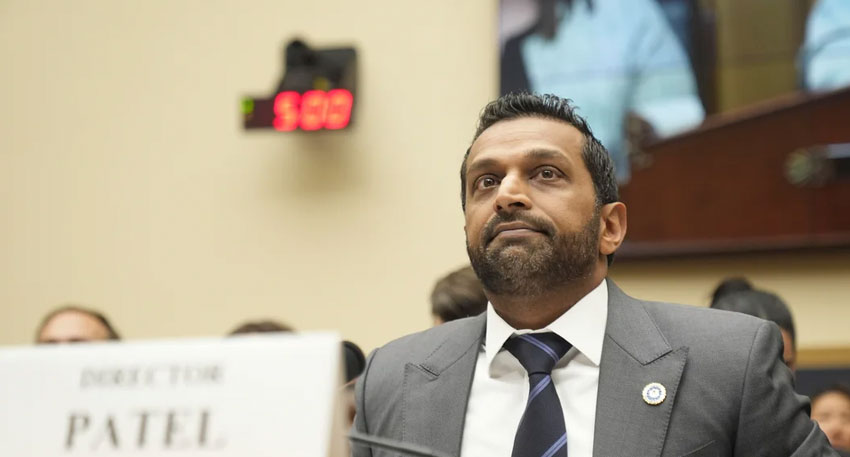
Kash Patel was questioned about whether Donald Trump’s name appears in Epstein files and whether all “credible” documents have been released.
Rep. Eric Swalwell (D-Calif.) pressed Patel repeatedly for a clear yes or no “Did you tell the Attorney General that Trump’s name was in the Epstein files? Patel replied that Trump’s name was not confirmed and that he had never made such a statement.
He emphasized that he has not personally reviewed every document but insisted the FBI has “released everything lawfully permissible.” In tense exchanges, Swalwell and others raised concerns over selective disclosure and potential political interference.
Some lawmakers claimed that vital files remain sealed or redacted. Patel repeatedly cited “legal constraints” — including past court orders, grand jury secrecy, and a 2008 plea agreement with Epstein — to justify the pace and scope of the document releases.
One contentious moment came when Swalwell asked whether Patel had told officials that Trump’s name appears in the files; Patel deflected, saying he wouldn’t “break the law to satisfy your curiosity.”
Also Read: EU commission drops bombshell: 5.8 billion euro free-trade deal with Israel at risk
Patel also agreed to investigate a letter allegedly signed by Trump in Epstein’s 50th birthday book, though Trump denies signing it. Democrats, including Reps. Jamie Raskin and Pramila Jayapal, accused Patel of misleading the public and accused the FBI of shielding powerful individuals.
Patel, in turn, defended his record, insisting there is no credible evidence implicating others besides Epstein himself or justified reason to withhold additional material beyond what the law requires. As of now, there is no indication of new, sweeping releases, but the committee’s pressure and public scrutiny suggest the issue remains far from resolved.




